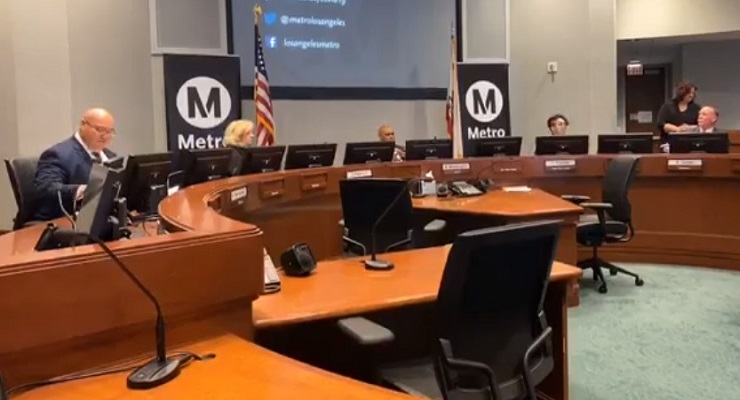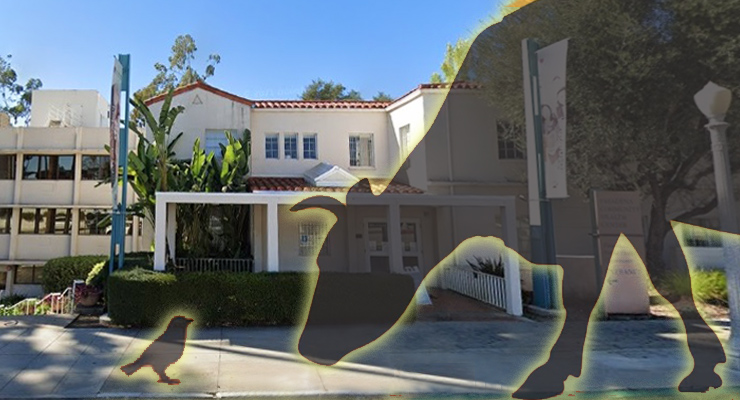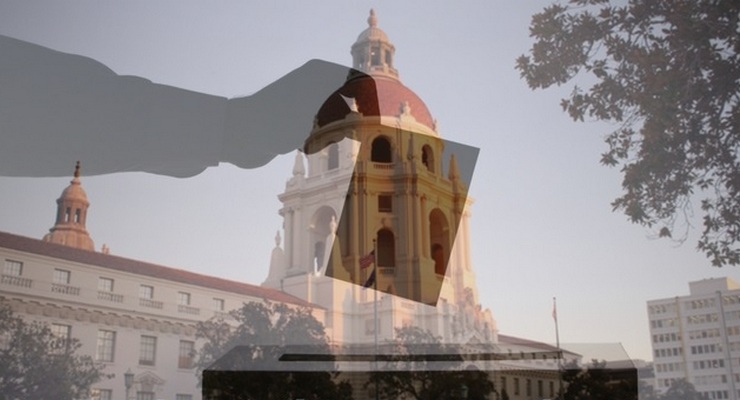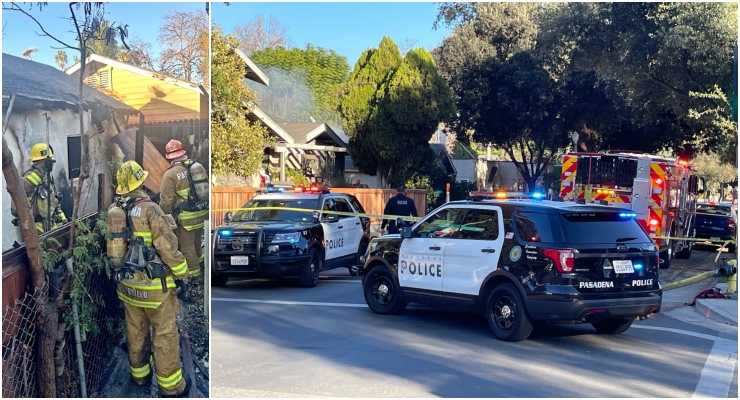
The Los Angeles County Metropolitan Transportation Authority Board of Directors Thursday approved a “condensed” spending plan of $6 billion for this fiscal year — down from $7.2 billion last fiscal year due to the COVID-19 pandemic.
The board also approved continuation of a reduced service plan until ridership returns to pre-pandemic levels, though various organizations have opposed keeping the service levels that low.
“I know how difficult as members of the board it is to try to steer Metro through a very difficult moment,” Los Angeles Mayor and Metro Board Chair Eric Garcetti said.
“To look at this budget, we have to understand, obviously, where we’re at economically. We all know that this is the worst economic moment of our lives collectively … We’ve never experienced this.”
Transit services are expected to remain at 81% of pre-COVID levels through at least the rest of the year, with boardings averaging at 55% of capacity.
However, people who spoke at the meeting said they need services restored to their levels prior to the pandemic.
Members of the Bus Riders Union of Los Angeles said the cuts will continue to affect essential workers, such as medical workers, grocery workers and others.
Garcetti said the reduced services are not a cut to the bus and rail lines, but services were reduced to make up some of the lost $1.2 billion in revenue from last fiscal year.
The mayor said the board’s action to continue with reduced services also comes with a priority to restore those services as soon as possible.
“I want to reassure people that that’s a commonly held value,” Garcetti said. “We will (seek) to increase bus service as we need it.”
Garcetti said he’s also hopeful of a short-term solution from the federal government to provide more money to cities and transportation agencies in the near future, which would take some of the sting out of the pandemic’s economic downturn.
Los Angeles Councilman Mike Bonin, who sits on the Metro Board, said he had concerns that the buses may be more crowded than the agency thinks because people who need to get to work need to get on the bus.
“What I’m experiencing is that we’re not currently running enough service to avoid crowded buses even by our own standards,” Bonin said. “We’re communicating through riders that it’s up to them to avoid the crowded buses and they’re better off waiting.”
Bonin said the cordoned areas of the first few rows of the buses to protect drivers from COVID-19 were not taken into consideration in the report for the board regarding capacity. The councilman was the lone dissenting vote on that item related to the budget.
The board is expected to receive a report back in 60 days on current service and ridership levels to determine when services could be fully restored or allow more people on Metro vehicles.
Some of the highlights to the budget Metro presented were that no full- time employees will be laid off and union workers’ wages will increase up to 4.5% per the collective bargaining agreements.
The budget also calls for $7 million in is NextGen buses for service enhancement and $123 million for other bus improvements.
For the Gold Line Extension Project, the board approved an additional $100 million for a total of $265 million, which will extend the line from Azuza to Montclair.
But the board also considered risks to the budget including future declines in sales tax revenue and the effects the COVID-19 pandemic could bring in the coming months. Costs of materials could also rise faster than inflation during this time, according to the board.














 0 comments
0 comments




